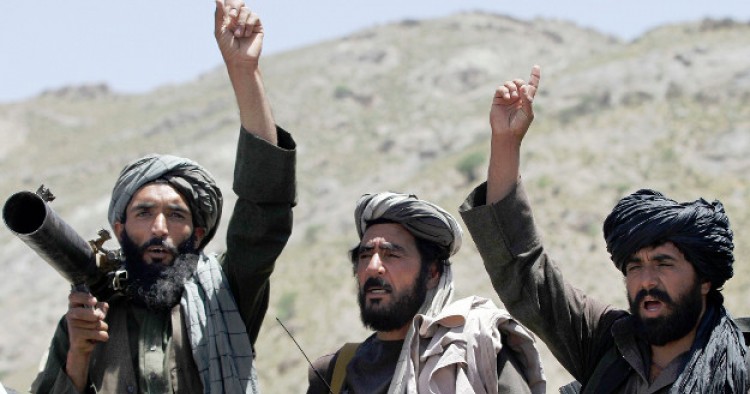In a meeting with a high-level delegation visiting Tehran on January 11, Iran’s President Hassan Rouhani called terrorism a common enemy of Afghanistan and Iran and pledged his country’s all-out support to Afghanistan’s stability. The Afghan delegation, headed by Chief Executive Abdullah Abdullah, has traveled to Tehran to attend the funeral of former Iranian president Akbar Hashemi Rafsanjani.
Rouhani’s remark is the latest indication of the Islamic Republic’s double-faced policy in Afghanistan and will not reassure Afghans who repeatedly complain about the Iranian government’s growing ties with the Taliban.
Indeed, just before leaving for Tehran, Abdullah told a visiting group of Iranian journalists in Kabul that talks with the Taliban had not yielded any results and warned that “instability in Afghanistan harms the entire region.” His remarks were perhaps directed at Iranian ambassador to Kabul Mohammad Reza Bahrami’s December 10 statement in the Iranian press that said Tehran maintained contacts with the Taliban for “control and intelligence” purposes.
Since the fall of the Taliban in late 2001, the Iranian government has played both sides of the conflict. While Tehran has cultivated friendly ties with successive Afghan governments and contributed to the country’s reconstruction efforts, the Islamic Revolution Guards Corps (IRGC) and its secretive Quds Force have provided money, weapons and training to the Taliban to speed up the withdrawal of American troops from its eastern neighbor.
The Middle East Institute (MEI) is an independent, non-partisan, non-for-profit, educational organization. It does not engage in advocacy and its scholars’ opinions are their own. MEI welcomes financial donations, but retains sole editorial control over its work and its publications reflect only the authors’ views. For a listing of MEI donors, please click here.













